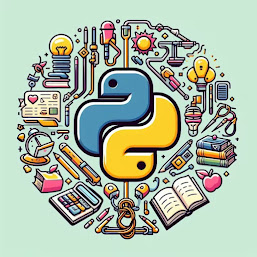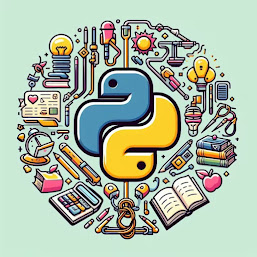I Never Fail, I either Win or Learn
 |
Win or Learn |
Embracing a Growth Mindset
Understanding the Concept of a Growth Mindset
So, imagine your mind is like a garden. A growth mindset is like having a green thumb – it's about seeing challenges as opportunities to plant seeds of potential that can bloom into success. Basically, it's all about believing that with effort and perseverance, you can improve and grow.Benefits of Adopting a Growth Mindset
By embracing a growth mindset, you're not just setting yourself up for success – you're also gearing up for some serious personal growth. You'll be more resilient in the face of setbacks, more open to learning and trying new things, and overall just a more awesome version of yourself. Plus, you get to feel super smug about being all enlightened and stuff. Win-win!Learning from Setbacks
Recognizing Failure as a Learning Opportunity
A setback isn't a sign that you're a total failure – it's more like a nudge from the universe to step up your game. Embracing failure as a teacher rather than a judge can help you unlock valuable lessons and insights that will ultimately lead you closer to your goals. Who knew failure could be such a wise old sage, right?Strategies for Extracting Lessons from Setbacks
When life throws you a curveball, don't just duck and cover – step up to the plate and swing for the fences. Reflect on what went wrong, adjust your approach, and come back swinging stronger and wiser. It's like the ultimate underdog sports movie, but with fewer inspirational montages and more real-life introspection.Cultivating Resilience and Perseverance
Developing Resilience in the Face of Adversity
Resilience is like the superhero cape you wear when life tries to knock you down. It's all about bouncing back from challenges, setbacks, and disappointments with style and grace. By developing your resilience muscles, you'll be able to weather any storm that comes your way – metaphorical or otherwise.The Role of Perseverance in Overcoming Challenges
Perseverance is like that friend who never gives up on you, even when you're being a total drama llama. It's all about grit, determination, and sheer stubbornness in the face of obstacles. By channeling your inner tenacity, you'll be able to overcome any challenge that dares to stand in your way. Take that, obstacles!Shifting Perspective on Failure
Redefining Failure as Feedback
Who says failure has to be a dirty word? Instead of viewing failure as a sign of personal inadequacy, think of it as valuable feedback that can help you course-correct and improve. Every stumble, fall, and faceplant is just another step on the path to greatness. Embrace the feedback, my friends!Overcoming Fear of Failure
Fear of failure is like that annoying little voice in your head that says you can't do it – well, tell that voice to take a hike! By reframing your relationship with failure and seeing it as a natural part of the learning process, you can banish that fear and embrace a fearless attitude towards taking risks and pursuing your dreams. Who needs fear when you've got courage and resilience on your side?**5. Extracting Lessons from Challenges** **Reflecting on Mistakes and Missteps** We all make mistakes, like that time you accidentally replied all to an email meant for just your best friend. Reflecting on these slip-ups helps us learn and grow, whether it's realizing you need to double-check your recipients or that maybe the whole office knowing your secret love for cat memes isn't the end of the world. **Identifying Patterns and Areas for Improvement** Spotting patterns in our failures is like finding that one missing puzzle piece that makes everything click into place. Maybe you keep burning your morning toast because you're constantly hitting snooze on your alarm. Recognizing these patterns helps us make small changes for big improvements, like finally enjoying a non-charred breakfast. **6. Building a Positive Relationship with Failure** **Fostering a Healthy Attitude Towards Failure** Failure isn't a four-letter word, but it might as well be considering how some people treat it. Embracing failure as a natural part of the journey towards success can feel as liberating as finally admitting your guilty pleasure for cheesy '80s music. It's all about reframing those flops as stepping stones, not stumbling blocks. **Celebrating Progress and Growth, Regardless of Outcome** Progress is progress, whether you're mastering a new skill or just getting better at adulting. Celebrating how far you've come is like throwing a party for your future self – because hey, she deserves it. Remember, it's not about the destination, it's about the dance moves you pick up along the way. **7. Applying Learnings to Future Endeavors** **Implementing Feedback and Insights into Future Actions** Feedback isn't just for online shopping reviews – it's crucial for personal growth too. Whether it's from a boss, a friend, or your inner voice (hey, it's valid), taking that feedback on board can guide you towards your next big win. It's like having a personal cheerleader who's also not afraid to tell you when you've got spinach in your teeth. **Setting Realistic Expectations and Goals Based on Past Experiences** Dream big, sure, but also dream smart. Using past experiences as your GPS can help you navigate towards achievable goals and set expectations that won't leave you feeling like you've trekked up Mount Everest in flip-flops. Remember, Rome wasn't built in a day, and neither was that killer resume of yours.In conclusion, by adopting a growth mindset, embracing failures as stepping stones to success, and cultivating resilience in the face of challenges, we can transform setbacks into opportunities for growth. Remember, it's not about whether we win or lose, but rather about the lessons we learn along the way that shape our journey towards personal and professional development. So, let us continue to strive, learn, and grow, knowing that failure is not the end but a vital part of the path to success.
How can I shift my perspective on failure to see it as a learning opportunity?
Failure is often seen as a negative outcome, but it can actually be a stepping stone towards growth and improvement. By reframing failure as a learning opportunity, we can shift our perspective to see it as a necessary part of the journey to success. Embracing failure allows us to identify areas for improvement, learn from our mistakes, and ultimately become stronger and more resilient individuals. By approaching setbacks and challenges with a growth mindset, we can extract valuable lessons that will help us navigate future obstacles with confidence and determination.
What strategies can help me extract valuable lessons from setbacks and challenges?
One strategy to extract valuable lessons from setbacks and challenges is to reflect on the experience and identify what went wrong and what could have been done differently. This self-reflection can provide insights into areas for improvement and growth. Additionally, seeking feedback from others can offer different perspectives and help us see the situation from a new angle. By being open to feedback and willing to learn from our mistakes, we can turn setbacks into opportunities for personal and professional development.
How can I develop resilience and perseverance in the face of adversity?
Developing resilience and perseverance in the face of adversity requires a growth mindset and a willingness to adapt and grow from challenges. By viewing setbacks as opportunities for growth and learning, we can build our resilience and develop the perseverance needed to overcome obstacles. Embracing feedback and being open to learning from our mistakes can help us navigate difficult situations with grace and determination.


0 Comments
Your opinion matters, your voice makes us proud and happy. Your words are our motivation.